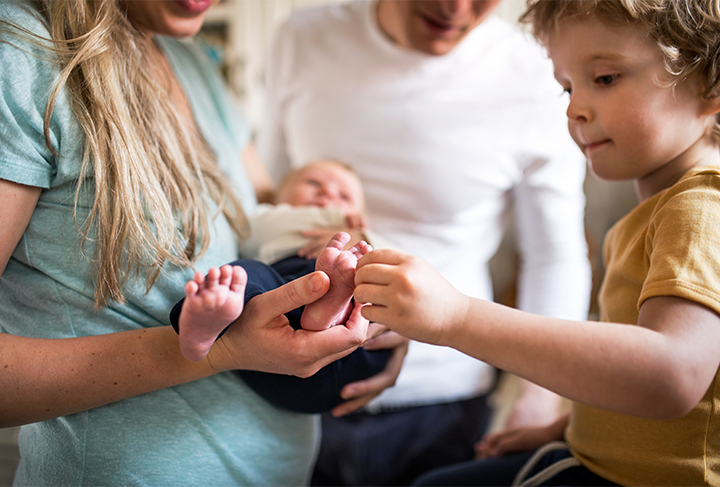
Dental Care for Children
- Home
- Services
- Service Lines
- Children's Care
- Dental Care for Children
Care of your child’s teeth begins at birth and continues through life. Although newborns and infants rarely have teeth (the first tooth usually pops in between 6 and 9 months) it’s important to remember that routine dental care should begin at birth.
Use a damp washcloth to wipe your newborn’s gums after every feeding and NEVER leave your baby in bed with a bottle. As soon as that first tooth pokes though the gums, begin using a soft bristle toothbrush with a tiny pea-size smear of toothpaste after feedings.
Ask your doctor about the timing of your baby’s first trip to the dentist. Some recommend making the first dental visit after the first tooth appears and before the first birthday. Others recommend the first visit sometime after the first tooth appears but before all the baby teeth are present, generally before 2 ½ years of age. If you have someone to help, you may want to bring your child along with you to one of your routine dental visits prior to his first exam. That way he can see the dentist is not threatening and become familiar with the sights and sounds of a dental office.
As your child gets older, routine dental care should include brushing at least twice daily.
Let your child help choose a toothbrush. Electric toothbrushes are great and fun. My little princesses love brushing with their princess toothbrushes and my grandson brushes like a madman with Buzz Lightyear. When your child gets permanent teeth, he should begin flossing every night at bedtime. Take your child (and yourself) to the dentist for routine examinations every six months. Discuss dental sealants with your dentist as well. They can protect teeth and prevent cavities for many years.
One concern parents have regarding their child’s teeth is thumb sucking and the use of pacifiers. This generally only becomes a problem if the habit persists much beyond the third year of life because it can cause bite abnormalities. Talk to your child’s dentist if you have concerns.
When your child begins to participate in sports, remember to protect the teeth. Most contact sports require mouth guards, but talk to your dentist about how to get the best fit and when they should be worn. And what should you do if your child’s teeth are traumatized or if a tooth is knocked out? Remain calm and try to find the tooth. If your child is old enough not to swallow it, place the tooth in its socket. If you can’t do that, place the tooth in a glass of milk. Either way, get to the dentist immediately.
Finally: a word about fluoride. Fluoride prevents tooth decay. Pediatric dentists recommend brushing with age-appropriate amounts of a fluoride-containing toothpaste. They’ll also often apply topical fluoride to your child’s teeth during routine check-ups. Safe, sufficient amounts of fluoride are added to the public water supply in most urban and suburban communities. If you drink well water or bottled water, or have concerns that your drinking water doesn’t contain an adequate amount of fluoride, please talk to your child’s doctor or dentist about possibly adding fluoride drops to your child’s diet.
